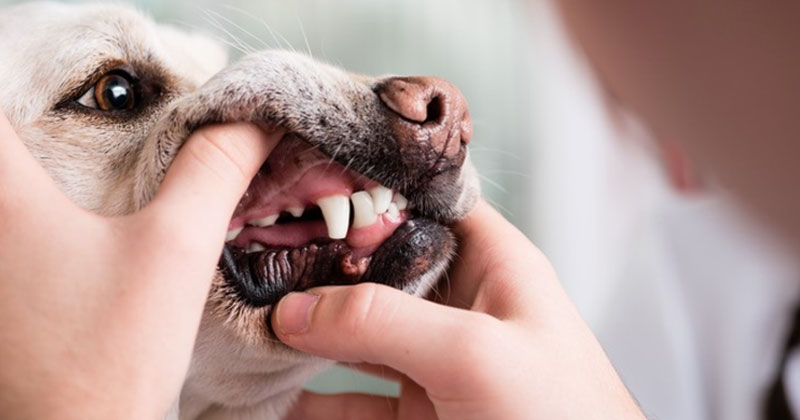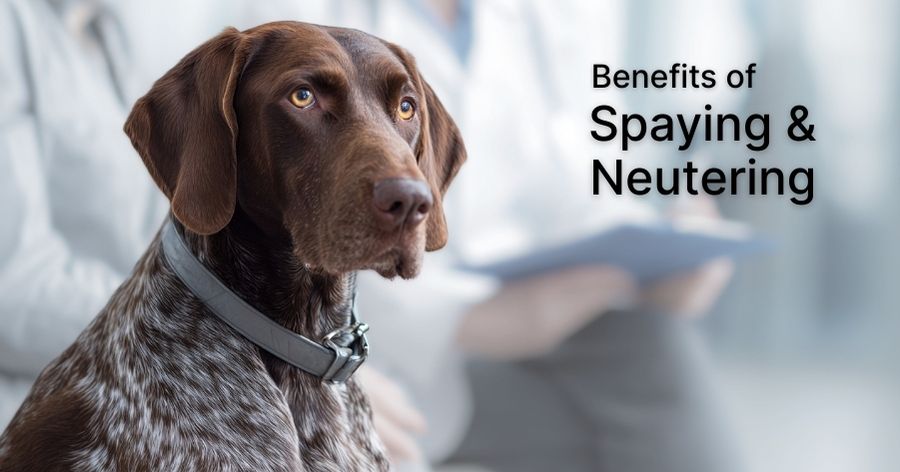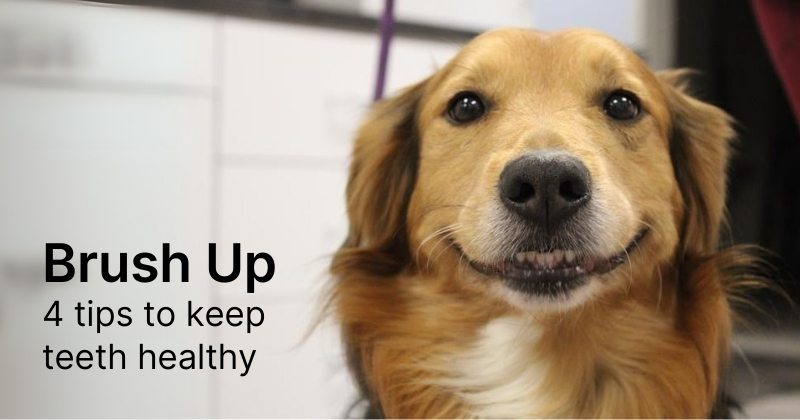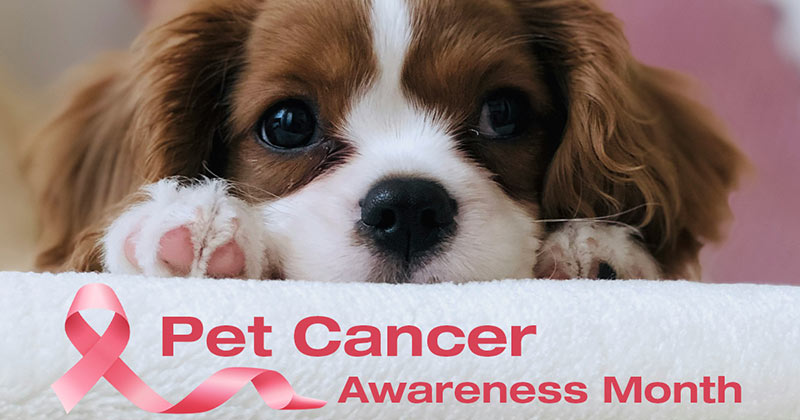
Your dog’s health is always a top priority, and dental care plays a significant role in their overall well-being. When you notice brown spots or discoloration on your dog's teeth, you might wonder, what exactly does it mean, and is it something to worry about? In this blog, we’ll explore the reasons why your dog's teeth may turn brown, what can cause this issue, and when it’s time to visit Walnut Creek Veterinary Clinic in Papillion, NE.
If you've ever wondered, "Why are my dog's teeth brown?" you're not alone. Many pet owners ask this question, and it often points to underlying dental or health issues. Several factors can lead to brown discoloration on your dog’s teeth.
Just like in humans, plaque forms when food particles and bacteria accumulate on the teeth. If left untreated, this plaque hardens into tartar, which is more difficult to remove and can cause the teeth to appear brown or yellow. Dogs that do not receive regular dental cleanings are at a higher risk of developing tartar and plaque buildup. This buildup can lead to more serious issues such as gingivitis and periodontal disease, making it crucial to address the problem early.
As bacteria break down the enamel of the tooth, they can create small holes, leading to discoloration. This decay can also cause pain and infection, which can spread to other parts of your dog’s mouth if not treated promptly. Decay is most common in older dogs, but it can occur at any age if proper dental care is neglected. Providing your dog with regular checkups at Walnut Creek Veterinary Clinic can help catch tooth decay before it becomes a serious problem.
If your dog has experienced an injury to their mouth, such as chewing on something too hard or sustaining a blow to the jaw, the tooth can be damaged. This trauma can cause the tooth to die, resulting in a brown or grayish color. Tooth trauma may not always be immediately noticeable, but over time, you might see a change in the color of your dog's teeth. If your dog has experienced an injury, it’s important to have their teeth evaluated to ensure no lasting damage.
Regular dental care is critical to maintaining the health of your dog’s teeth and gums. Without it, issues like tartar buildup, decay, and tooth trauma can quickly escalate.
A diet that includes hard kibble can help reduce plaque buildup, while wet food may stick to the teeth and lead to faster tartar formation. Additionally, certain treats and chews are specifically designed to promote dental health by scraping away plaque as your dog chews. However, diet alone isn’t enough. Routine brushing and professional cleanings at Walnut Creek Veterinary Clinic are necessary for preventing plaque and tartar from becoming more serious dental issues.
During routine dental visits, your vet will assess the condition of your dog's teeth and gums, checking for any signs of plaque, tartar, or decay. Professional cleanings are also more thorough than at-home care, reaching areas that may be difficult for you to clean properly. If your dog's teeth are already showing signs of brown discoloration, it’s time to schedule a dental exam. Walnut Creek Veterinary Clinic offers comprehensive dental care to help restore your dog’s oral health.
While brown teeth are often a sign of dental problems, they can sometimes point to more severe health concerns. If you notice other symptoms along with the discoloration, it’s important to seek veterinary care as soon as possible.
Brown teeth can sometimes be a symptom of an infection in the mouth, particularly if the discoloration is accompanied by bad breath, swelling, or difficulty eating. Infections can spread quickly and cause significant discomfort for your dog. If left untreated, infections can lead to tooth loss and other systemic health problems, such as heart or kidney disease. A veterinary professional at Walnut Creek Veterinary Clinic can evaluate your dog’s teeth and provide the appropriate treatment.
In rare cases, brown teeth may be linked to broader health issues. Conditions like diabetes, kidney disease, or liver disease can sometimes manifest as changes in oral health, including brown or yellowing teeth. This is why regular veterinary care is so important—not only for oral health but for your dog's overall well-being. If you have any concerns about your dog's health beyond their teeth, a thorough examination at Walnut Creek Veterinary Clinic can help rule out any serious underlying conditions.
Once the cause of your dog’s brown teeth is identified, there are several treatment options available. The course of action will depend on the severity of the issue and whether any complications have arisen.
The first step in treating brown teeth caused by plaque or tartar is a professional cleaning. During this procedure, your vet will remove the buildup of plaque and tartar, clean the teeth, and polish them to prevent future issues. In some cases, your dog may also need a fluoride treatment to strengthen their teeth. Professional cleanings should be done annually or more frequently, depending on your dog's oral health needs.
In cases where tooth decay or trauma has caused severe damage, your vet may recommend extracting the affected tooth. While this may sound extreme, it is often the best option for preventing further pain and infection. After the extraction, your dog can return to their normal, pain-free life with proper post-operative care.
Regular at-home care combined with professional cleanings can significantly reduce the likelihood of brown teeth in dogs.
If you’re noticing brown discoloration on your dog's teeth, early intervention can prevent further damage and improve your dog's overall quality of life. Contact Walnut Creek Veterinary Clinic at (402) 505-5445 or request an appointment today to schedule a dental exam for your dog. We’re here to help your pet live a happy, healthy life with a bright, clean smile.


